Jerusalem – The City of Gold
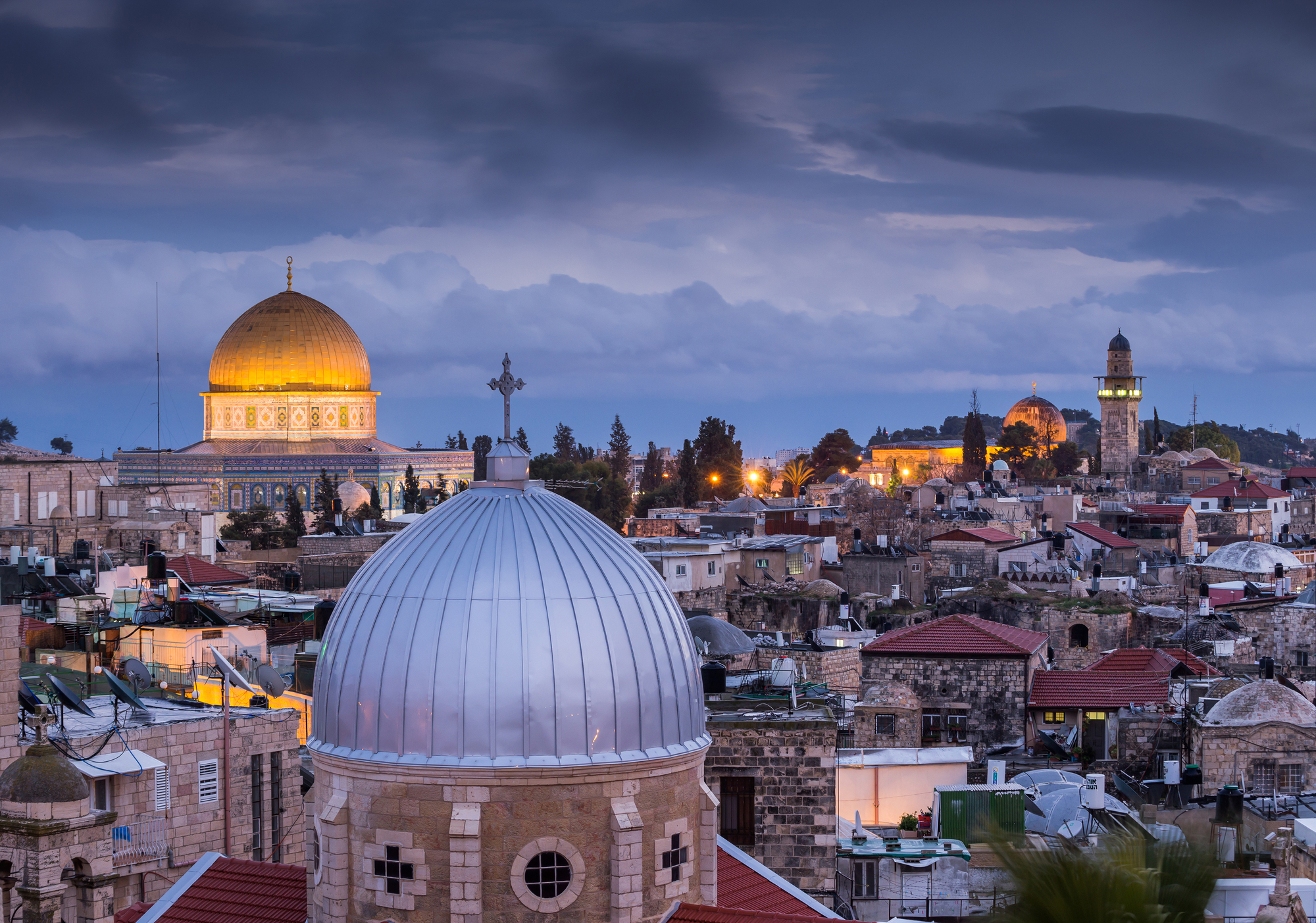
There is something special about the ancient city of Jerusalem. Those who have visited the city can attest to it, all three Abrahamic faiths lay claims to it and even an atheist is fascinated by its tumultuous history filled with wars, conquests, human grandeur, and suffering.
The obvious question is – why? Why is this small city in the Middle East so important that no one is left neutral towards it? The answer to that question can be found in the Bible: it is because God has chosen this city to be the centre of world history – His story – and because He loves this city. We read in Psalm 132: 13-14:
For the Lord has chosen Jerusalem;he has desired it for his home.“This is my resting place forever,” he said.“I will live here, for this is the home I desired.
Jerusalem is first mentioned in Genesis 14:18 in relation to the mysterious Melchizedek, who is called the Priest of the Most High God and the King of Salem. It appears again as the Jebusite city when Joshua leads the children of Israel to the Promised Land, and King David later establishes Jerusalem as Israel’s capital around 1000 AD. Jerusalem is mentioned in the Bible over 800 times, 146 of which are in the New Covenant. Zion is another name which is used for Jerusalem and which in its immediate context denotes the hill where King David built his city. By contrast, the Quran does not mention Jerusalem at all.
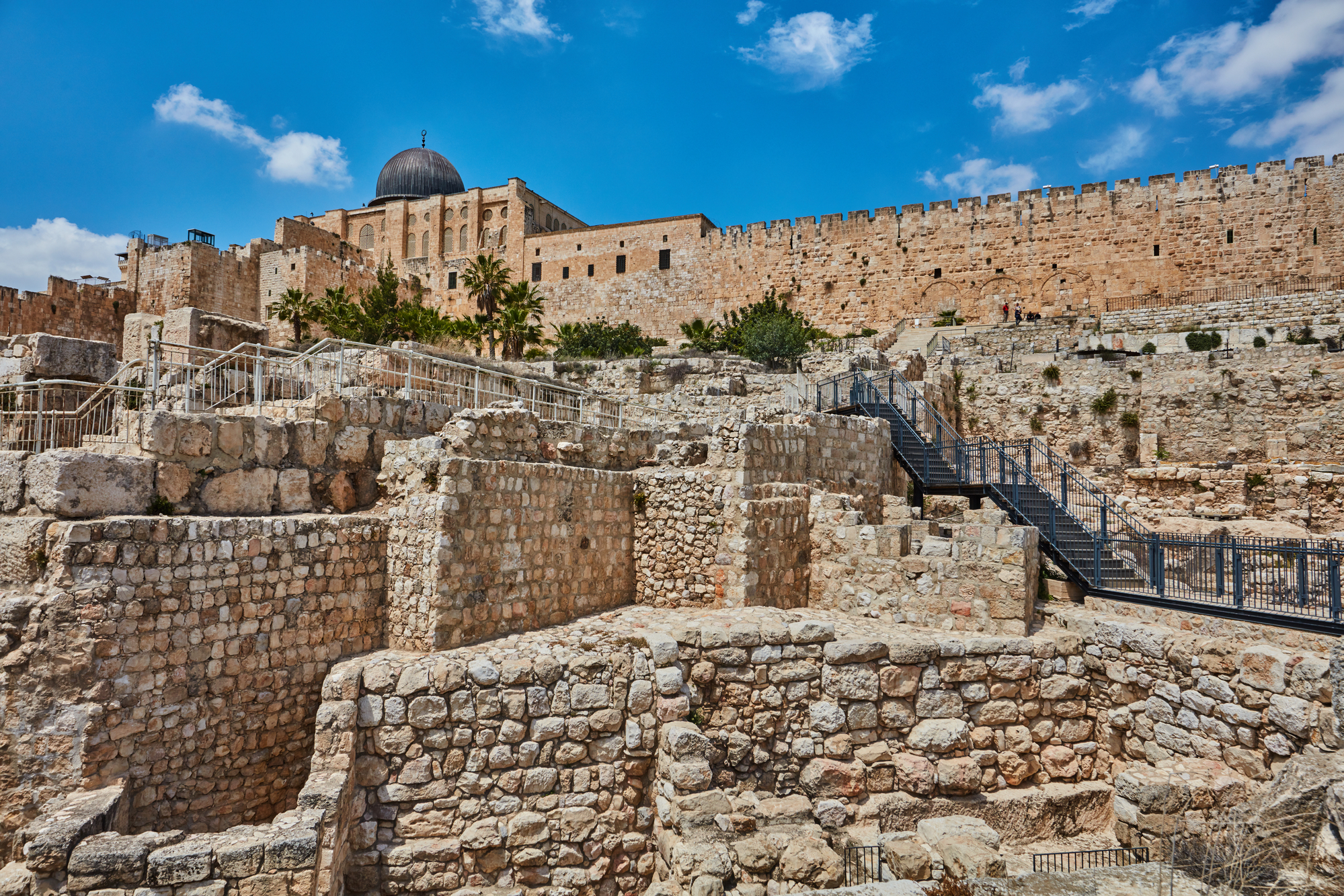
In Hebrew, Jerusalem is pronounced Yerushalayim. The exact meaning of the word varies between different sources. Some say it means the teaching of peace, others looking towards peace, but all agree that the word shalom – peace, wholeness, completeness – is contained in that name. Shalom is the word that expresses the very essence of our God – Jesus/Yeshua is known as the Prince of Peace (Sar Shalom in Hebrew). Jonathan Cahn, a Messianic Rabbi, in his The Book of Mysteries adds an interesting detail to the meaning of Yerushalayim: the ending ayim denotes duality, meaning there are two Jerusalems – one earthly, which is in existence now, and the other heavenly, the one we are looking forward to (Revelation 21).
When Jewish people speak about Jerusalem, it is always with great passion and longing, especially when they are in exile. Psalm 137 conveys this longing in a powerful way as it depicts the children of Israel in Babylonian exile, dreaming about Jerusalem:
If I forget you, O Jerusalem,let my right hand forget how to play the harp.May my tongue stick to the roof of my mouthif I fail to remember you,if I don’t make Jerusalem my greatest joy.Psalm 137:5-6
When religious Jews pray three times a day, they always turn towards Jerusalem. The holy days of Passover and Yom Kippur (Day of Atonement), when celebrated in exile, are always concluded with the following words La-Shanah haba’ah bi Yerushalayim – ‘next year in Jerusalem’. The hope of return has never died. Now, as Jerusalem is again the capital of Israel (although contested by certain world powers), this dream has come true for those Jewish people who have made Aliyah (returning to the land, ascent in Hebrew). The longing, however, has remained, as you can well hear in Jewish music generally and in the beautiful song Yerushalayim Shel Zahav (‘Jerusalem of Gold’) by Ofra Haza particularly:
Our God, the God of Israel is well aware of the battles, both spiritual and physical, that are being fought for the Holy City of Jerusalem. Therefore, He has commanded us to pray for the peace of Jerusalem in the well-known psalm, Psalm 122. The tone of the psalm is that of a happy expectation as the tribes of Israel go up to Jerusalem to bring their offerings of thanksgiving to the Lord. The same excitement should be ours as Christians when we pray for the peace of Jerusalem:
Pray for peace in Jerusalem.May all who love this city prosper.O Jerusalem, may there be peace within your wallsand prosperity in your palaces.For the sake of my family and friends, I will say,“May you have peace.”For the sake of the house of the Lord our God,I will seek what is best for you, O Jerusalem.Psalm 122:6-9
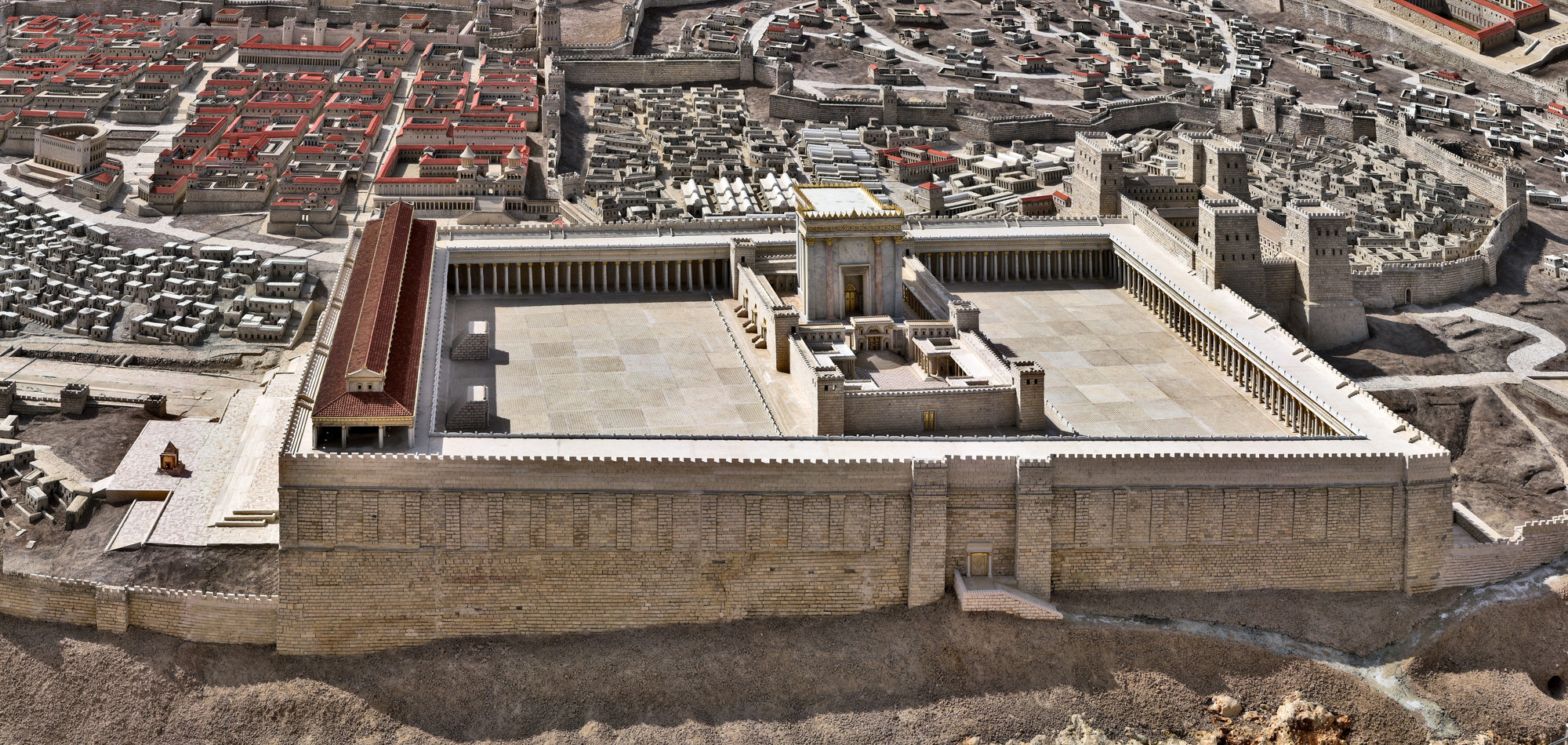
The main reason Jerusalem was the focal point in Old Covenant times was that the Holy Temple (Beit HaMikdash in Hebrew) was situated there. King David had desired to build a dwelling place for the Lord, but the Lord did not allow him to do that. In 1 Chronicles 22:8 God tells David that he has shed too much blood to build Him the Temple, so it was David’s son Solomon who accomplished the magnificent undertaking on Mount Moriah in Jerusalem. The location is prophetically significant since it was the same mountain where Abraham went to offer up his son Isaac.
There have been two Temples in the history of the Jewish people. The first was destroyed in 586 BC by the Babylonians when they took the people of Judah captive, and the second one by the Romans in 70 AD when they dispersed the Jews all over the world. According to the prophecy in Ezekiel 40-48, a third Temple will be built, the preparations of which are already under way (for more info see https://templeinstitute.org/ ).
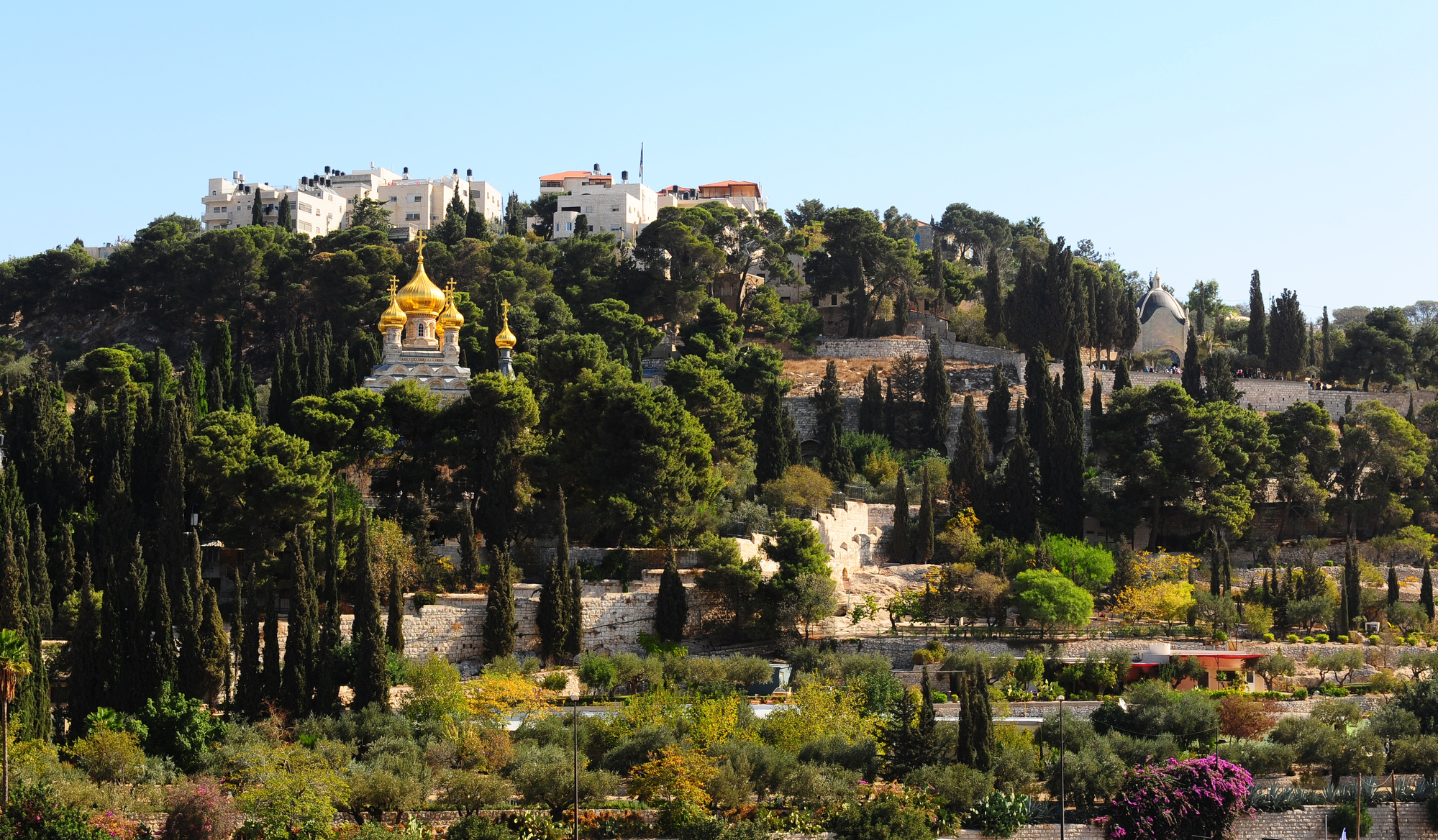
Jerusalem also took centre stage in the ministry of Jesus – it is the place where He was crucified, buried, resurrected, and from where He ascended into heaven. Jesus called Jerusalem the ‘City of the great King’ (Matthew 5:35). He wept over Jerusalem as He predicted its destruction (Luke 19:41-44). In Matthew 23:37-39 Jesus pours out His sorrow and anguish over Jerusalem and its people:
“O Jerusalem, Jerusalem who kills the prophets and stones those sent to her! How often I longed to gather your children together, as a hen gathers her chicks under her wings, but you were not willing! Look, your house is left to you desolate! For I tell you, you will never see Me again until you say, ‘Baruch ha-ba b’shem Adonai. Blessed is He who comes in the name of the Lord!’” (TLV)
Jerusalem is also the birthplace of the church and the location where Jesus will return at the end of this age (Acts 1:10-11; Zechariah 14:3-5). Until then, we as His church have been instructed by Jesus to preach the gospel from Jerusalem to the ends of the earth (Acts 1:8) and to pray and intercede for Jerusalem (Psalm 122, Isaiah 62). We have already spoken about praying for the peace of Jerusalem, but it is worth mentioning that the Book of Isaiah, in chapters 60, 62 and 66, focuses on the future glory of Jerusalem, when God will have restored the fortunes of this amazing city. Until then we have a clear mandate from the Lord:
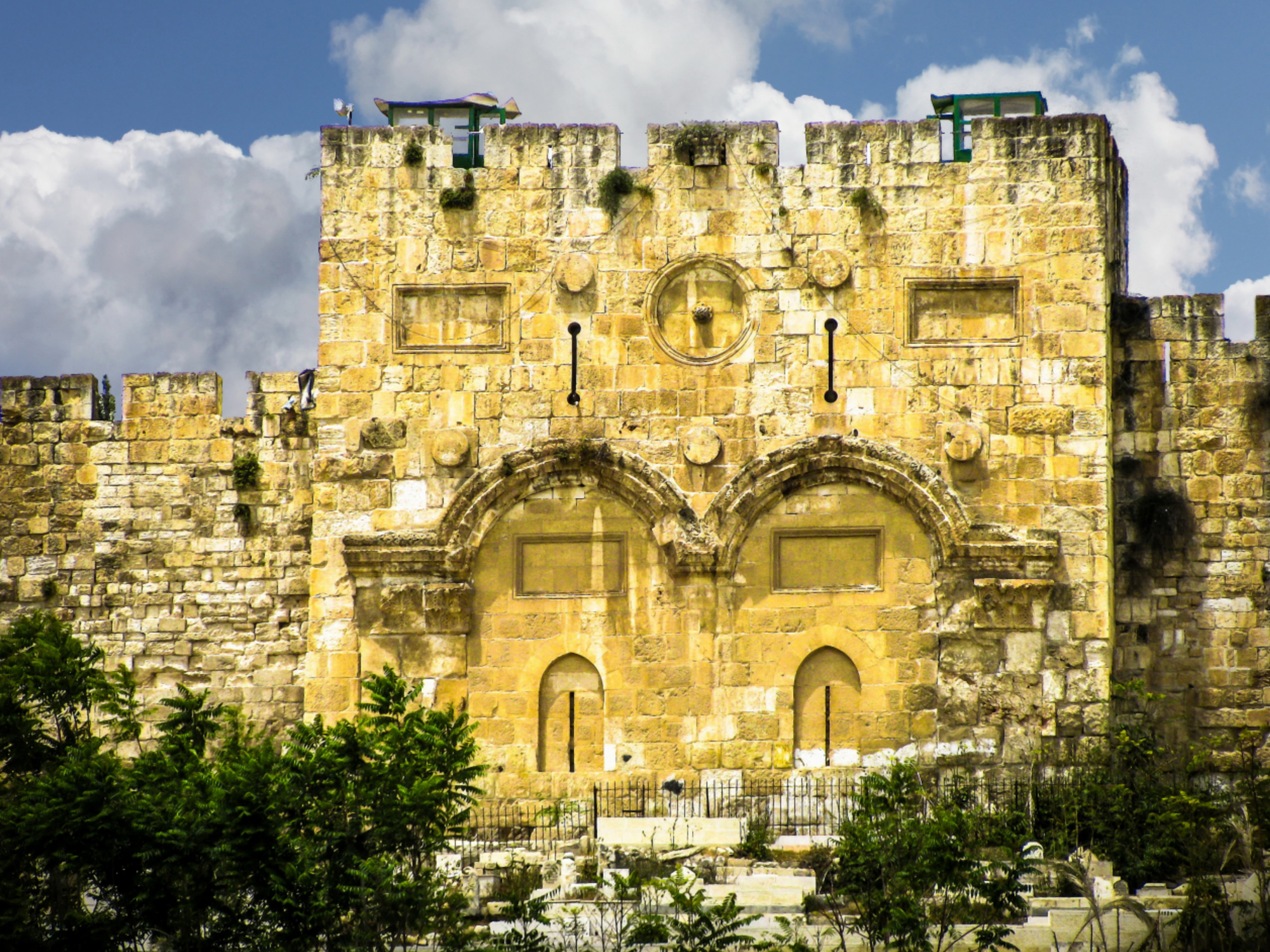
On your walls, Jerusalem, I have set watchmen.All day and all night, they will never hold their peace.“You who remind Adonai,take no rest for yourselves,And give Him no rest until He establishesand makes Jerusalem a praise in the earth.Isaiah 62:6-7
But the story will not end here. The ultimate end is the heavenly Jerusalem, which we can glimpse in Revelation 21:10-14:
So he took me in the Spirit to a great, high mountain, and he showed me the holy city, Jerusalem, descending out of heaven from God. It shone with the glory of God and sparkled like a precious stone—like jasper as clear as crystal. The city wall was broad and high, with twelve gates guarded by twelve angels. And the names of the twelve tribes of Israel were written on the gates. There were three gates on each side—east, north, south, and west. The wall of the city had twelve foundation stones, and on them were written the names of the twelve apostles of the Lamb.
Jerusalem – the City of Gold; the city that stands forever, from ancient of times until there is no time.
